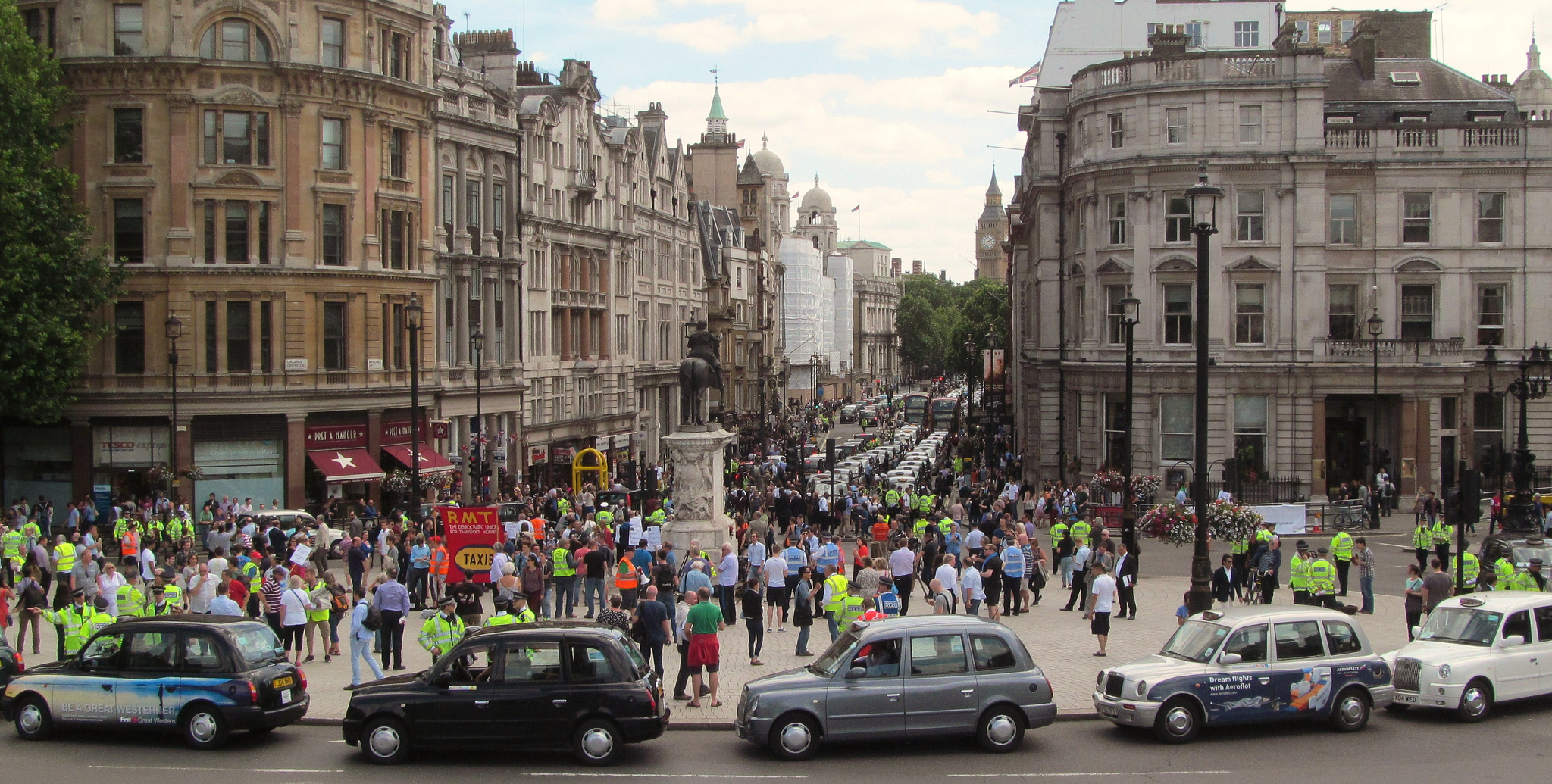Taxi for Uber? It’s Time for London to Take Control of Transport
by Nathan Akehurst
22 September 2017

As someone all too familiar with stumbling out of a bar at 3am unable to find a bus stop, I’m not unsympathetic to those worried about what happens next after Transport for London’s (TfL) revocation of Uber’s private hire licence.
But one of London’s most exploitative employers, which has ridden roughshod across regulators, unions and civil society in its quest for market domination is now being held to account.
This is a good thing for Londoners, fought for and won in part by organised workers. In May minicab drivers, including Uber staff, joined black-cab drivers in calling for improved workers’ rights including the minimum wage and holiday pay to be a condition of Uber being able to renew its London licence.
TfL has repeatedly attempted to resolve its issues with Uber about data, security and public safety – from software which hides data from regulators to issues around DBS checks. Anyone who thinks the decision is all down to the black cab lobby or GMB union should note that this ruling would never have happened if Uber had complied with not particularly onerous demands.
Uber will appeal against the decision and is already trying to mobilise customers to petition against the ruling, but it now knows that London’s transport authority has muscle and is willing to use it. The company may well now pivot towards compromise and reach an out of court arrangement.
If it does not and the ruling holds, Uber has only itself to blame.
Uber workers alongside Deliveroo riders and now McDonald’s workers have pioneered new forms of industrial action in the economy of ‘gigs’, zero hours contracts and routine low pay that has seen some UberEats drivers earn effectively £5 an hour. Uber’s refusal to accept a sham self-employment status led to a High Court ruling showing that drivers are in fact employees entitled to workers’ rights.
The labour movement’s agenda is not TfL’s. Fractious disputes over conditions on London Underground bear that out. But the ruling does ramp up overall pressure on Uber.
However, the move also threatens the income of tens of thousands of marginal workers who may not be able to migrate to other apps automatically.
This argument is being pressed into service by right-wingers whose only concern is venture capital being held to account by City Hall. But it has also been made by IWGB, a small union organising with drivers and other precarious workers who describe the ruling as a “devastating blow.”
The blame for this situation lies with Uber – but having dropped a bomb, it is TfL’s responsibility to find a way of cleaning up the damage.
Assuming that TfL does not buckle, there are three possible outcomes:
One is a permanent Uber ban. Invariably other apps will try to fill the gap, and market forces will continue. In the meantime we would have lost jobs and a form of transport that is cheap, convenient and has rapidly become a critical part of London’s transport network.
Another is the appeal process resulting in a rehabilitated Uber, compliant with TfL’s requirements. This would be an improved status quo, and together with the High Court ruling on drivers’ self-employment, create a chastened Uber management with which unions can attempt to negotiate.
But if Uber digs its heels in and no agreement is reached, City Hall could get creative in how it fills the gap.
There are precedents in the US for non-profit Uber-style apps to learn from, and even Uber’s London competitors. The TfL estate contains miles of advertising space and City Hall has an in-house PR department – marketing would not be a problem. Certainly there are few technical challenges in building an app and placing it under the direction of a TfL-backed mutual (or TfL itself).
Venture capital subsidies and poor working conditions hold down Uber’s prices. But a moderate price increase is worth paying for secure jobs and modern infrastructure which as part of a coherent strategic plan could bring down costs associated with getting around London overall.
TfL are no Luddites – existing papers consider the prospect of demand responsive technology and even autonomous vehicles (the latter posing a separate set of questions on jobs) as part of the transport network. Limited trials are underway in two boroughs. And some reasonable deal could be cut with black-cab drivers to preserve the integrity of their trade – one idea would be to integrate them with the app and offer first refusal for customers in parts of Zone 1. TfL would of course have to bargain collectively with drivers’ unions.
And the rise of a TfL platform or a TfL-backed mutual would send a message to other sections of our economy run by corporate mob rule – reminding, say, property developers and absentee landlords that they operate in London at the sufferance of Londoners. Follow your obligations to people, or get out and be replaced.
The city belongs to us, not venture capitalists. We should be unafraid to ask for more control.